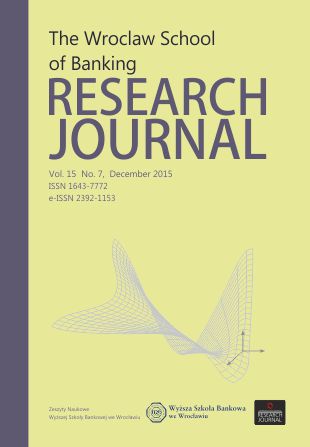Energy-efficiency measures at the Mexican Maquiladoras
DOI:
https://doi.org/10.29015/cerem.157Słowa kluczowe:
Energy efficiency, energy audits, Mexico, Maquiladoras, Climate ChangeAbstrakt
The energy consumption worldwide by the industrial sector is expected to keep increasing during the coming years; generating greenhouse gas (GHG) emissions as unwanted byproducts. For that reason, industrial facilities must take concrete initiatives in order to decouple their production growth from their CO2 emission generation in order to decrease their contributions to global warming. Concerned that this is a world-wide problem, Mexican maquiladoras have started several energy-efficiency initiatives. This article present the results of a descriptive and analytical study that has been conducted during the two first stages of the framework of the Cleaner Production Program focused on Energy Efficiency by the United Nations Environment Programme.
Findings reveal that, although electrical devices seem work efficiently; it is still possible to address energy waste. It was also found that attaching the energy-efficiency approach to the cleaner production framework is a complicated task because, unlike emissions and toxic residues, energy inefficiencies are not easily visible, verifiable, or measurable.
Bibliografia
Al-Shehri A. (2000), A simple forecasting model for industrial electric energy consumption, “International Journal of Energy Research”, vol. 24 no. 8, pp. 719-26.
Annunziata E., Rizzi F. and Frey M. (2014), Enhancing energy efficiency in public buildings: the role of local energy audit programmes, “Energy Policy”, vol. 69, pp. 364-373.
Apostolos F., Alexios P., Georgios P., Panagiotis S. and George C. (2013), Energy Efficiency of Manufacturing Processes: A Critical Review, “Procedia CIRP”, vol. 7, pp. 628-33.
Backlund A. and Thollander P. (2014), Impact after three years of the Swedish energy audit program, “Energy”, vol. 82, pp. 54-60.
Bilgen S. (2014), Structure and environmental impact of global energy consumption, “Renewable and Sustainable Energy Reviews”, vol. 38, pp. 890-902.
Boyd G. and Curtis M. (2014), Evidence of an “Energy-Management Gap” in U.S. manufacturing: spillovers from firm management practices to energy efficiency, “Journal of Environmental Economics and Management”, vol. 68 no. 3, pp. 463-479.
Brunke J., Johansson M. and Thollander P. (2014), Empirical investigation of barriers and drivers to the adoption of energy conservation measure, energy management practices and energy services in the Swedish iron and steel industry, “Journal of Cleaner Production”, vol. 84, pp. 463-479.
Climate Neutral Group (2015). How much is 1 tonne of CO2? [online] Climate Neutral Group, http://climateneutralgroup.com/en/how-much-is-1-tonne-of-co2/ [20.06.2015].
Fleiter T., Schleich J. and Ravivanpong P. (2012), Adoption of energy efficiency measure in SMEs- an empirical analysis based on energy audit data from Germany, “Energy Policy”, vol. 51, pp. 509-525.
Hedman A., Sepponen M. and Virtanen M. (2014), Energy efficiency rating of districts, case Finland, “Energy Policy”, vol. 65, pp. 408-418.
Intergovernmental Panel on Climate Change (2014), Cambio Climático 2014 Impactos, adaptación y vulnerabilidad (Climate Change 2014 Impacts, Adaptation and Vulnerability) [online] Intergovernmental Panel on Climate Change, https://www.ipcc.ch/pdf/assessment-report/ar5/wg2/ar5_wgII_spm_es.pdf [20.06.2015]
Kontorovich A., Epov M. and Eder L. (2014), Long-term and medium-term scenarios and factors in world energy perspectives for the 21st century, “Russian Geology and Geophysics”, vol. 55, no. 5–6, pp. 534-43.
Martin R., Mirabelle M., de Preuz L. and Wagner U. (2013), Anatomy of a paradox: management practices, organizational structure and energy efficiency, “Journal of Environmental Economics and Management”, 63 no. 2, pp. 208-223.
Matsuo M., Yanagisawa A. and Yamashita Y. (2013), A global energy outlook to 2035 with strategic considerations for Asia and Middle East energy supply and demand interdependencies, “Energy Strategy Reviews”, vol. 2 no. 1, pp. 79-91.
Morrison M. and Hatfield-Dodds S. (2011), The Success and Failure of an Inconvenient Truth and the Stern Report in Influencing Australian Public Support for Greenhouse Policy, “Economic Record”, vol. 87 no. 277, pp. 269-281.
Murphy L. (2014), The influence of energy audits on the energy efficiency investment of private owner-occupied household in the Netherlands, “Energy Policy”, vol. 65, pp. 398-407.
Olanrewaju, O. and Jimoh, A. (2014), Review of energy models to the development of an efficient industrial energy model, “Renewable and Sustainable Energy Reviews”, vol. 30, pp. 661–71.
SEMARNAT (2013). Factor de emisión eléctrico 2013 (Electric emission factor 2013) [online] SEMARNAT, http://www.geimexico.org/factor.html [20.06.2015].
Shen B. Price L. and Lu H. (2012), Energy audit practices in China: national and local experiences and issues, “Energy Policy”, vol. 46, pp. 346-358.
Shrivastaka S., Kumar S. and Khare J. (2013), Improving Industrial Efficiency by Energy Audit, “International Journal of Scientific Engineering and Technology”, vol. 2, no. 4, pp. 291-294.
Sorrel S. (2007), The Rebound Effect: an assessment of the evidence for economy-wide energy savings from improved energy efficiency. UK Energy Research Centre.
UNITED NATIONS ENVIRONMENT PROGRAMME (2004). Cleaner Production -Energy Efficiency- Manual. Words and Publications, Oxford.
Xuezhi L. and Ying C. (2011), Analysis of enterprise energy audit countermeasure in China, “Energy Procedia”, vol. 5, pp. 1893-1897.
Pobrania
Opublikowane
Numer
Dział
Licencja
Autor przenosi nieodpłatnie na Wyższą Szkołę Bankową we Wrocławiu , bez ograniczeń terytorialnych, majątkowe prawa autorskie do tego utworu w rozumieniu ustawy z dnia 4 lutego 1994 roku o prawie autorskim i prawach pokrewnych ( Dz.U. 1994, Nr 24, poz. 83 ze zm. )na zasadzie wyłączności, tj. prawo do:
a) wyłącznego używania i wykorzystania utworu w dowolnej działalności przez Wyższą Szkołę Bankową we Wrocławiu, w szczególności w działalność Biblioteki Cyfrowej uruchomionej przez Wyższą Szkołę Bankową we Wrocławiu
b) wytwarzania, utrwalania i zwielokrotniania egzemplarzy utworów wszelkimi technikami, w tym techniką drukarską, reprograficzną, zapisu magnetycznego oraz techniką cyfrową, w szczególności ich zwielokrotniania poprzez dokonywanie zapisów na płytach typu CD,
c) zamieszczenia wybranych fragmentów utworu w celach promocyjnych w publikacjach, materiałach promocyjnych, w sieci Internet oraz sieciach wewnętrznych typu Intranet Wyższej Szkoły Bankowej we Wrocławiu,
d) wprowadzania utworu do pamięci komputera Wyższej Szkoły Bankowej we Wrocławiu,
e) kopiowania i powielania utworu w technologiach fotomechanicznych lub innych znanych w dniu zawarcia umowy (fotokopie, kserokopie itp.),
f) przetworzenia dzieła na formę elektroniczną i nieograniczonego rozpowszechniania w sieci Internet.


